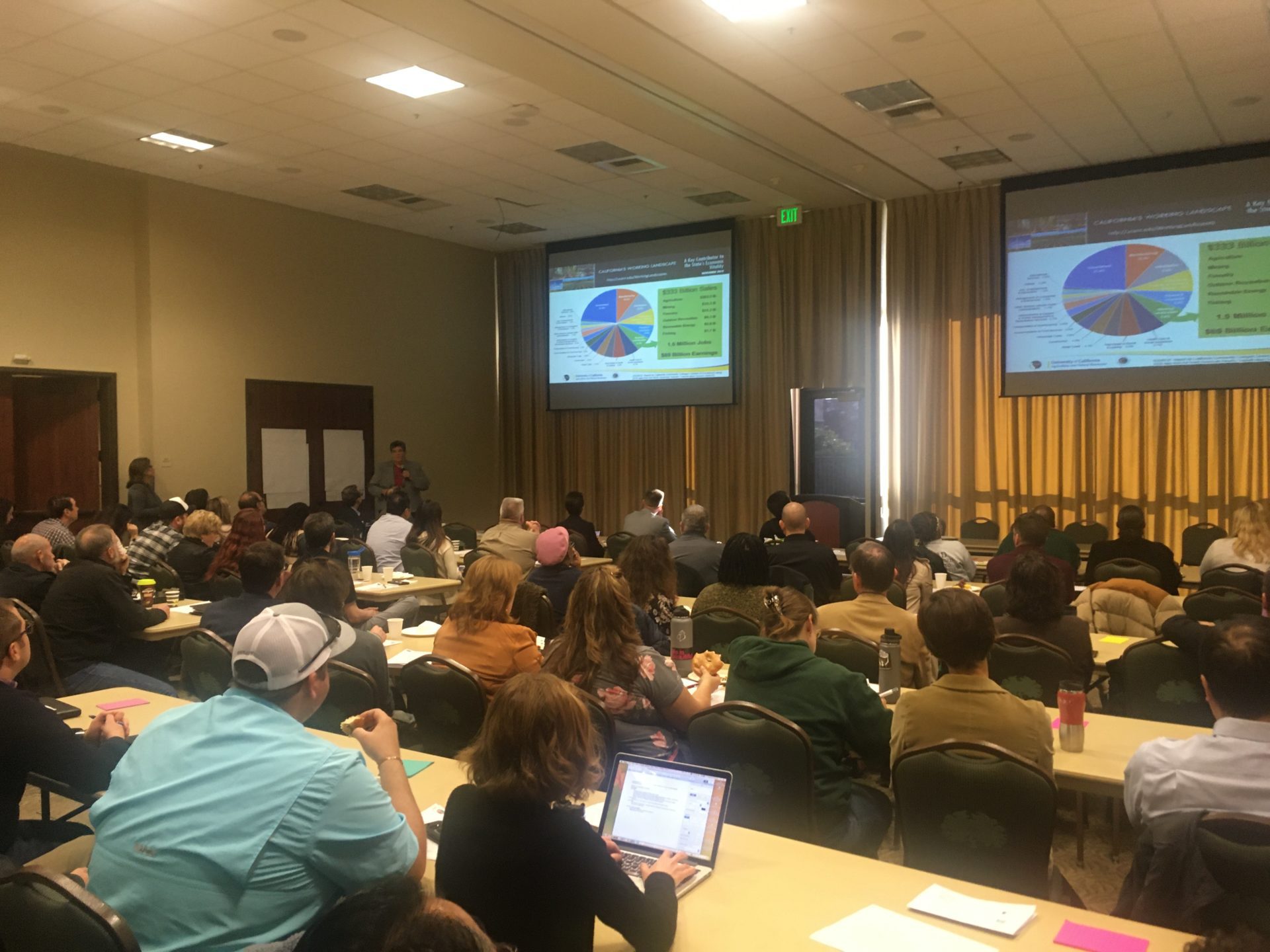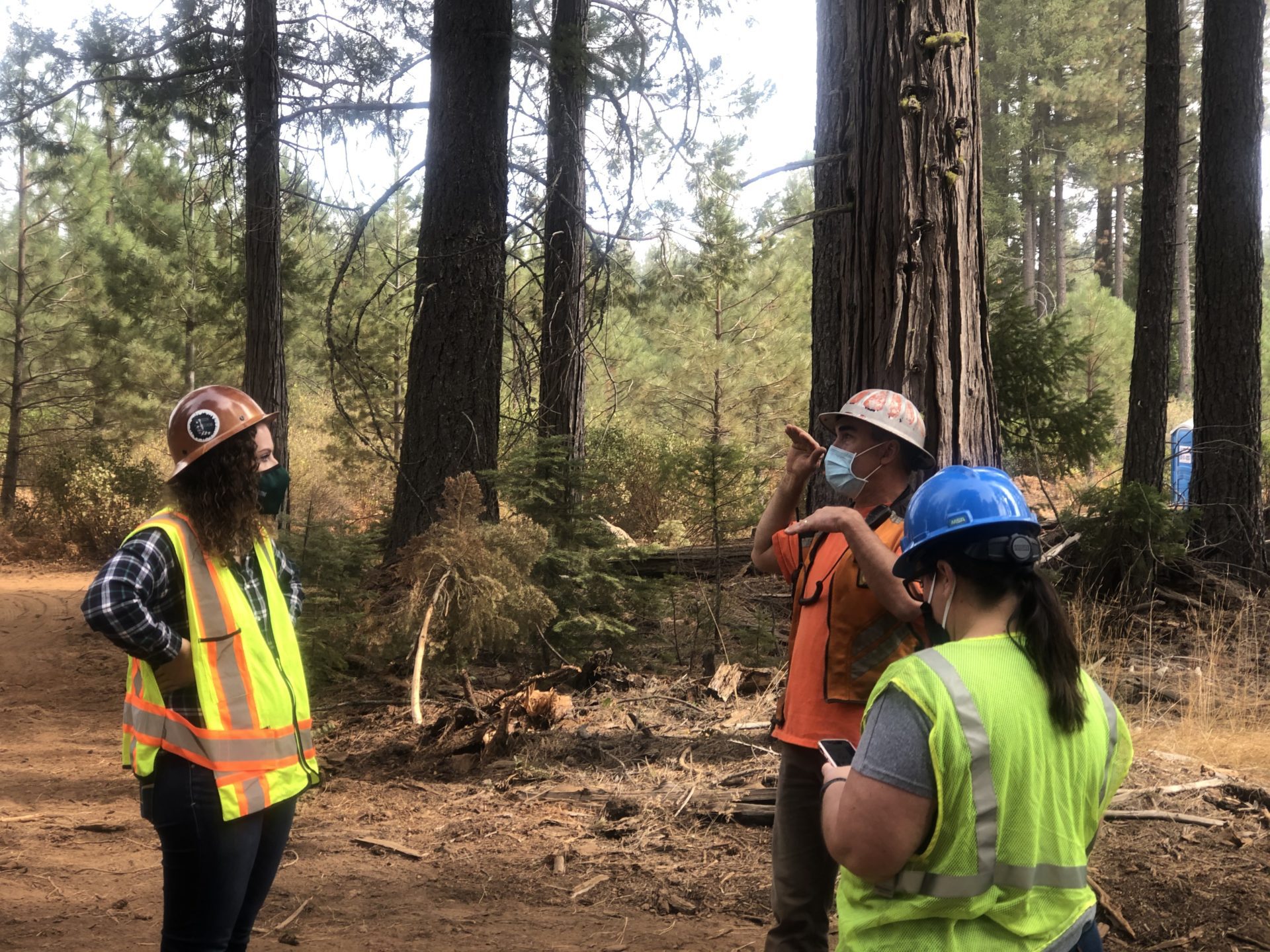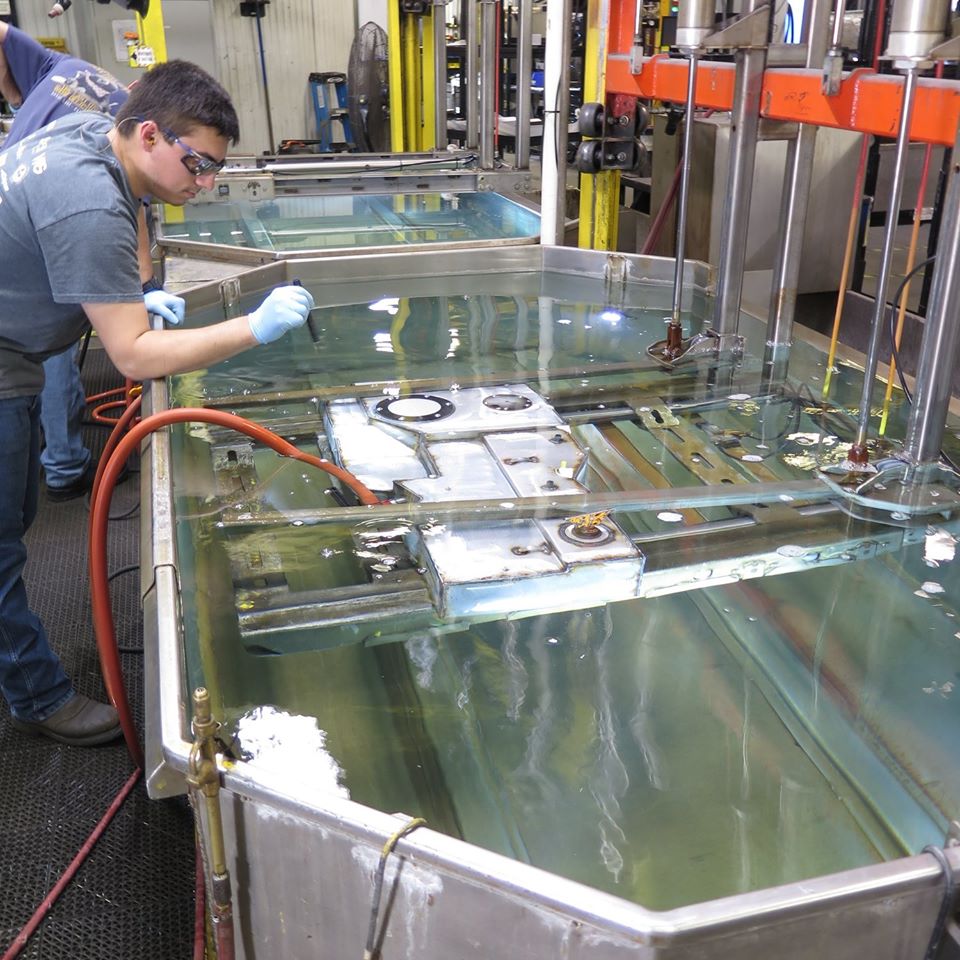How a tumultuous 2020 highlighted college-employer partnerships in California
2020 Employment Sectors Roundup
The light at the end of the tunnel may well be a medical assistant’s penlight – or a spark from a welder’s torch.
After 11 months in crisis mode, California’s economic recovery will no doubt depend on a versatile, educated workforce. And while the events of 2020 clogged college-to-career pipelines in ways that were impossible to foretell, they also managed to toughen the increasingly critical bond between employers and career education.
“Frontline” employers in the North-Far North, from law enforcement and public services to health, transportation, retail and logistics, relied on their college partnerships to find innovative solutions to meet surging demand. Meanwhile, crisis-affected industries used the “down time” to recalibrate services to align with the emerging future.
American River College instructor Galen Hartman, who looked to local career education as an employer in the Sacramento Valley for 26 years, may have said it best: “Innovations happen when there is a need.”
With the “need” becoming more apparent – and innovation ever more essential – the colleges of the North and Far North regions met 2020’s startling challenges with the same “Butte Strong” mindset that sustained resilience in the communities of its most crisis-tempered member institution.
Beginning with a Butte College career education update, we’d like to set a tone for 2021 by looking back at a few of the most inspiring stories from California’s employment sectors in the past year.
 Energy, Construction & Utilities
Energy, Construction & Utilities
Building back ‘Butte Strong’
For the people of Paradise, displaced and hardened by the Camp Fire, the coronavirus crisis was just another test.
When the 2018 fire tore through 90 percent of the town’s structures, it also devastated a workforce. Nearly 28,000 community members lost their livelihoods, wiping out a period of economic emergence right along with family homes and memories.
Through the smoke and soot, Butte College alum Charles Brooks saw hope – even after losing his own home. As Executive Director of the nonprofit Rebuild Paradise Foundation, he has seen firsthand the power of Career and Technical Education to bolster workforce development through partners like Butte College.
“The fact that a community college can be agile to change programs, adapt with the needs of the community, and work with community partners, that is going to help attract new people back to the area,” says Brooks.
Thanks in part to Butte College’s efforts, the local workforce is beginning to develop a blueprint for recovery. Immediate plans for the Applied Construction class include connecting student volunteers to rebuilding projects with the disaster relief nonprofit Hope Crisis Response Network. Meanwhile, the newly launched HVACR program – the first of its kind north of Sacramento – is set to provide the impacted industry with much-needed professionals.
“It’s a win-win for everybody,” says Butte College Department Chair Tom Williams.
Retail, Hospitality & Tourism
Hospitals and hospitality…
As the broader workforce scrambled to balance health and safety with economic fitness in the wake of COVID-19, the hospitality and healthcare industries continued to explore ways to amalgamate their similar skillsets.
“We figured out early that … restaurant workers translated easily into skilled nursing and assisted living,” says Julie Holt, employer engagement director for the North Region Health sector. “Hospitality and healthcare is a natural fit.”
Drawing on established employer-college connections, as well as persistent advocacy from the Office of Sacramento Mayor Darrell Steinberg, the Hospitality to Health (H2H) initiative found itself with dozens of willing partners in the senior living and skilled nursing industries. On the training side, seven Sacramento-area community colleges joined employment development organizations like the Sacramento Employment and Training Agency to build a sustainable blueprint for industry cross-training.
“Employees in the hospitality sector were among the hardest hit by impacts of coronavirus mitigation … we needed to act quickly,” says Andrew Kehoe, Civic Engagement Liaison for the Sacramento Mayor’s Office. “Efforts like H2H do not exist without great teams and solid collaborative efforts.”
 Advanced Manufacturing
Advanced Manufacturing
Even in lockdown, collaboration is key.
From companies like Southern Aluminum Finishing in Redding, which “hasn’t missed a beat” in supplying companies like Tesla, to the CNC shops dotting the region, Advanced Manufacturing has managed to remain essential in Northern California.
The sector’s secret to remaining robust, according to Far North Advanced Manufacturing Regional Director John Schmidt, is collaboration. And nowhere has that synergy been more apparent than in the wake of COVID-19.
“There was a lot of mindshare up and down the state with people who normally wouldn’t have talked to each other,” says Schmidt, who worked with North Director Jeff Briggs to launch a variety of new initiatives to connect employers with educators.
Innovations included “Shop Talks,” weekly virtual forums that acted as a crucial platform to innovate and share resources in the wake of distance learning. At the same time, College of the Redwoods worked with non-profit educator Tooling U-SME to coordinate online training to finish the semester. Along the way, the regional directors have collaborated to expand the potential of Fusion 360, a cutting-edge generative design program by Autodesk that is increasingly in-demand for its hyper-efficient and cost-effective manufacturing.
From urban Sacramento Valley, to rural Shasta and Butte counties, that kind of connectivity has the potential to set a bold foundation for Northern manufacturing.
“We’ve seen in COVID that to be self-sustaining, we’ve got to have the Advanced Manufacturing skill set here,” says Schmidt.
Business
Accounting jobs grow on trees
Sometimes, it pays to go against the grain.
When Shasta College became the first school in California to earn a commercial timber license for its award-winning Heavy Equipment Logging Operations (HELO) program, it opened up career possibilities not only in the lumber, but in the numbers.
In 2020, Shasta debuted cross-departmental training to match accounting students with careers in the timber industry. Already, the unique partnership is creating opportunities for both HELO and Business students to put down roots for a sustainable future.
While HELO students learn how to safely harvest materials for sale to Sierra Pacific, accounting students will soon be using their financial skills to make operations run even more efficiently. With accounting students balancing the books, the operation will become self-sustaining, all while boosting in-demand skills across disciplines.
“The cross-discipline training being offered by Shasta College is unique and innovative,” says industry partner Dr. Timothy Robards, Staff Chief of Forest Health, Wood Products and Bioenergy at CAL FIRE. “Merging the two is critical … and the success of forest products businesses are critical to the state of California in sustainably managing its forest lands.”
 Health
Health
Cross-training effort showcases ‘nurse-atility’
When it comes to nursing careers, versatility isn’t just a virtue – it’s vital. And while a nurse’s specialization may be defined by a particular alphabetical suffix, the letters don’t tend to spell out the entire résumé.
For health care employers, the idea of harnessing the flexible skills of general and entry-level nurses to fill revolving demand for specialty nurses makes a world of sense. The problem, says NFNRC Regional Director Julie Holt, is that “it’s too expensive” to run a training program.
That’s where career education comes in. By applying the versatile skill sets of general nurses to subspecialties like ICU and obstetrics, a hospital could adapt to changes in demand without resorting to temporary hires or costly upskilling programs.
“Despite aggressive and costly recruiting efforts, it can still be very difficult to fill vacancies with experienced RNs in Labor & Delivery, Emergency Department, Surgery and the ICU,” says Lawson Stuart, Director of Clinical Education and Professional Practice at Dignity Health of Sacramento. “Developing local training programs has proven an effective solution.”
Employers like Dignity Health and Enloe Medical Center are collaborating with California Community Colleges to deliver these cross-training programs from Sacramento to Eureka. Bolstered by funding from the Health Workforce Initiative (HWI), the innovative effort represents a surgical approach to the persistent problem of specialty nursing shortages.
For impacted departments, that agility translates to increased efficiency, better job security, and fewer instances of “burnout.” For nurses, it’s a step up in responsibility… and that’s not all…
“They usually get a raise,” says Trudy Old, Regional Director of Employer Engagement for the Far North.
Advanced Transportation
Opportunities collide as tech takes over
“Things are changing daily within the industry when it comes to technology,” says Galen Hartman, automotive instructor at American River College. And when it comes to innovations in transportation safety, in particular, seat belts are only the start.
From Advanced Driving Assistance Systems like lane departure controls to collision monitors, technology is driving a trend toward higher education in the collision repair industry. For employers like Caliber Collision, access to cutting-edge training at institutions like ARC has been key to maintaining the sector’s economic engine.
“As technology and the vehicle become more comprehensive and complex, every little bit that students are equipped … it’s a massive leg up,” says Caliber’s Talent Acquisition Coordinator Thomas Walker, who oversees 170 shops from San Diego to Reno.
For Walker, the career education programs provided by American River College’s Advanced Transportation department have proven vital to the company’s talent pipeline.
“It’s not easy to find the right people. And that’s where the relationship with Galen and ARC really steps in and helps both of us.”
Connect with the NFNRC on social media or visit our website for more career education stories like these. Do you have a North-Far North employer success story to share? Submit your request for a story on the NFNRC website at https://nfnrc.org contact page contact form.
 Advanced Manufacturing
Advanced Manufacturing Health
Health